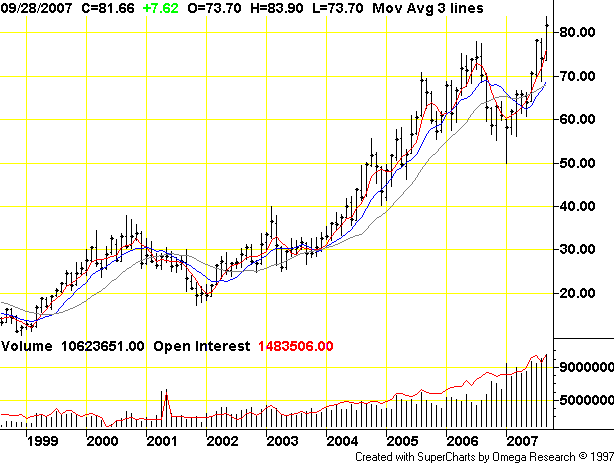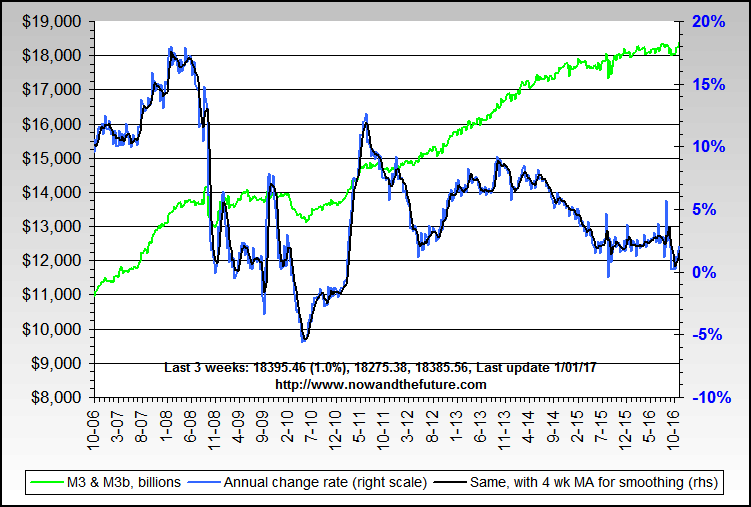 |
ECB's Weber Says Interest Rates May Need to Become Restrictive
Oct. 11, 2007 (Bloomberg)
"Price increases are taking place on a broad front and are no longer limited to energy and volatile food prices," he said.
Compare this to the most recent flatulent comments on inflation in the minutes of the Federal Open Market Committee from the September 18, 2007 meeting. The FOMC members "...recognized that incoming data on core inflation continued to be favorable, and they generally were a little more confident that the decline in inflation earlier this year would be sustained. Inflation expectations seemed to be contained, and the less robust economic outlook implied somewhat less pressure on resources going forward."
If you eat, pay taxes, or fill your gas tank, you know the Fed's assertion stinks. Even the government's own data point to a distinct change in inflation trends starting in 2004.

The Fed occasionally talks about oil prices as driving inflation, as if the money needed to pay for the oil prints itself. Also up since 2004?

With the ECB talking hawkish right after the Fed paves the way for further rate cuts with soft talk on inflation, small wonder the dollar dropped and gold rose.
Soon enough the entire world is going to need a coordinated Paul Volcker early 1980s style inflation smack-down, recession and all. But the economy and credit markets are far from out of the woods, so at this point the risk of creating a worse event than recession remain too high. Demand slowing due to the collapsing housing bubble combined with rising inflation are taking their toll on retailers, which are also, as usual, blaming the weather.
Retailers Report Slow September Sales
Sales are coming in soft, as expected," said Ken Perkins, president of RetailMetrics LLC, a research company in Swampscott, Mass. "It was a perfect storm, a combination of abnormally warm weather, high food and energy prices, a continued sluggish housing marketing and tight credit."
Fresh victims of the credit crunch are appearing over the horizon.Sales are coming in soft, as expected," said Ken Perkins, president of RetailMetrics LLC, a research company in Swampscott, Mass. "It was a perfect storm, a combination of abnormally warm weather, high food and energy prices, a continued sluggish housing marketing and tight credit."
Is Commercial Real Estate The Next Subprime?
Mounting evidence suggests bubble conditions may be emerging in US commercial real estate valuations, CreditSights warns in a new report on the sector.
Mounting evidence suggests bubble conditions may be emerging in US commercial real estate valuations, CreditSights warns in a new report on the sector.
The recent boom in non-residential construction has almost entirely made up for the slump in residential investment, in turn significantly increasing the economy’s dependence on the commercial real estate sector, CreditSights says in Bubblenomics - Hunting for the Next Subprime in Commercial Real Estate. An even bigger problem may be overinflated commercial real estate prices, the report says.
Maybe fund managers can keep the DOW up for the rest of the year to collect bonuses, but not if a fresh credit crisis hits, inflation remains high and central bankers grow bold enough to talk about it in public.


Comment